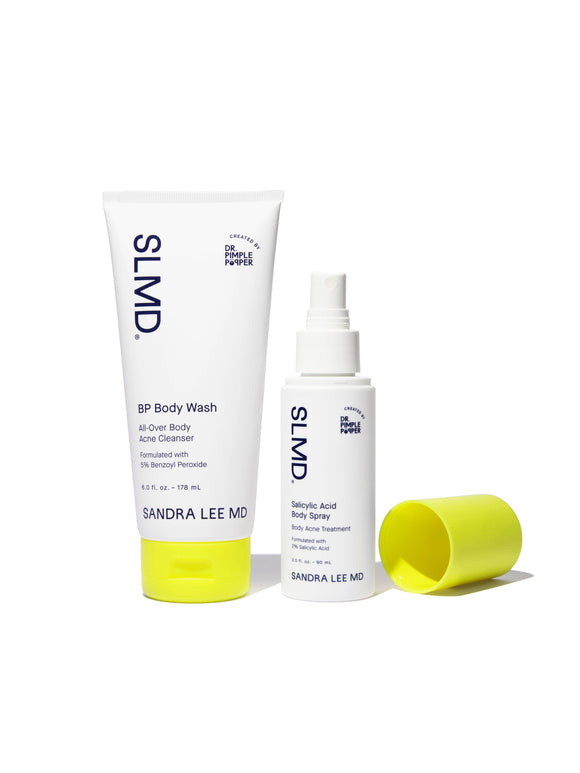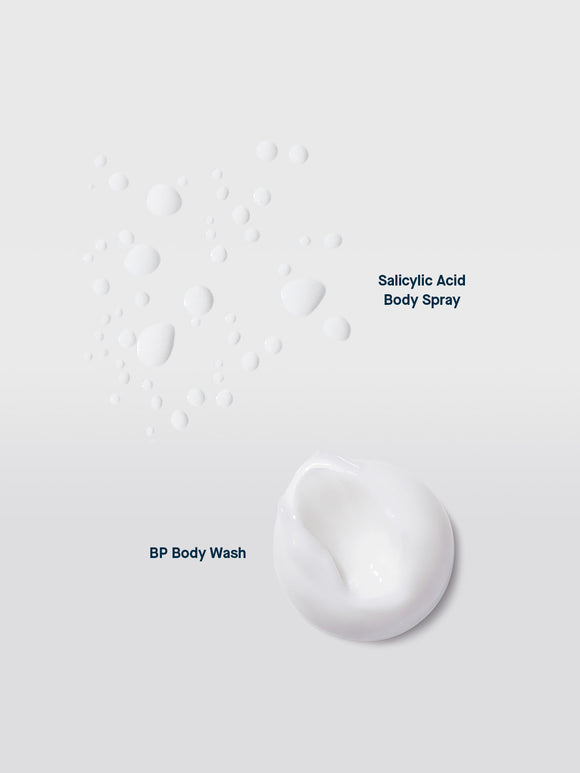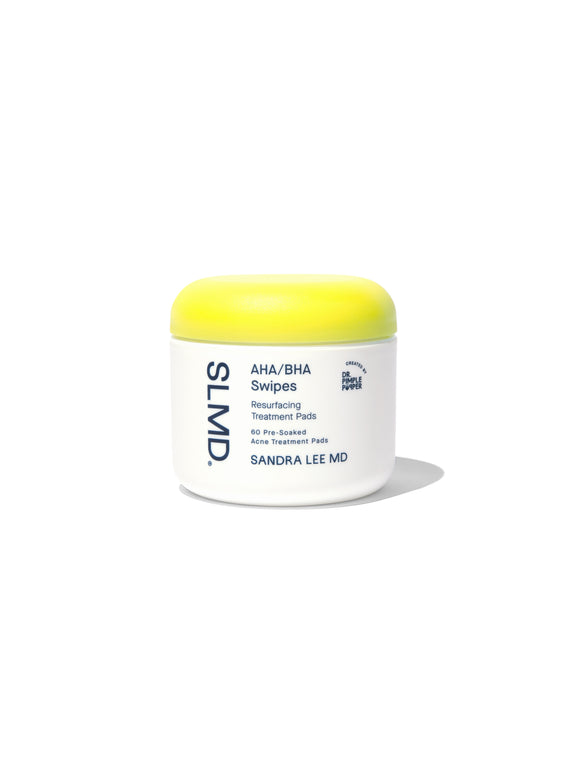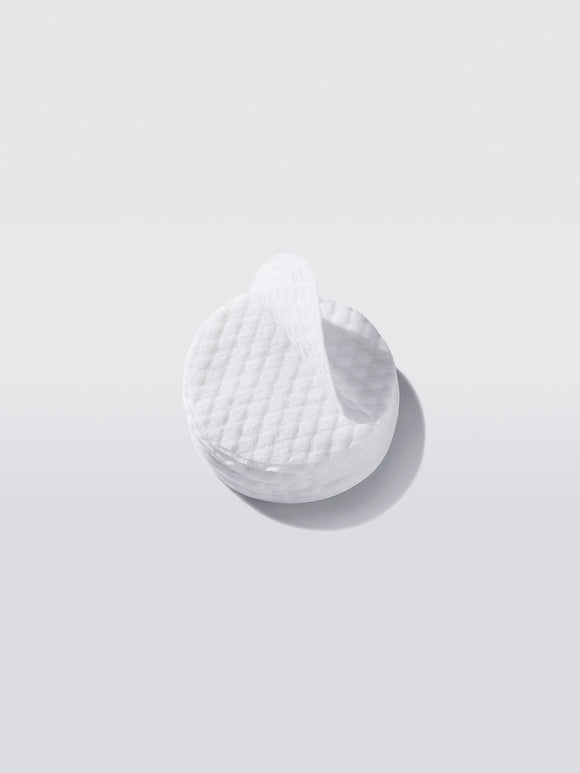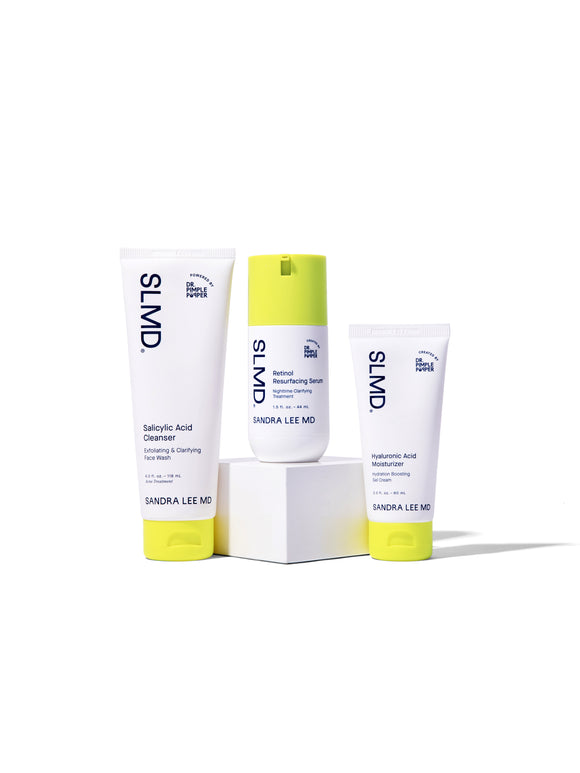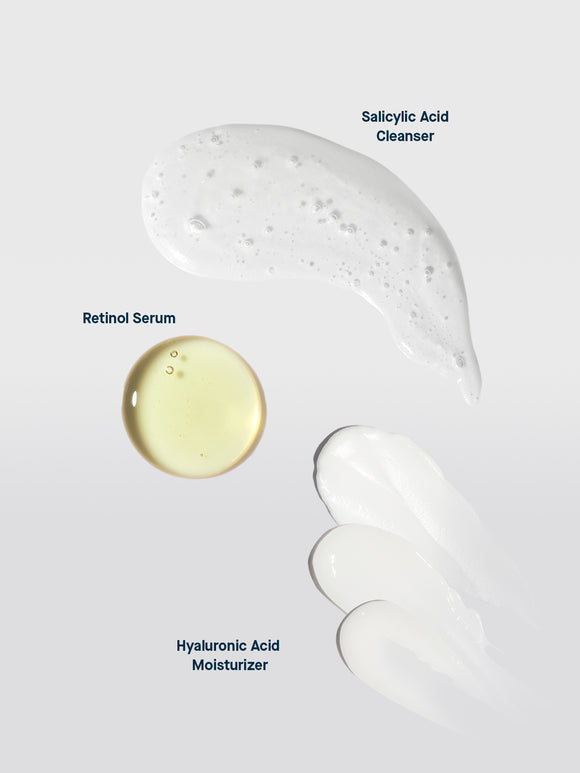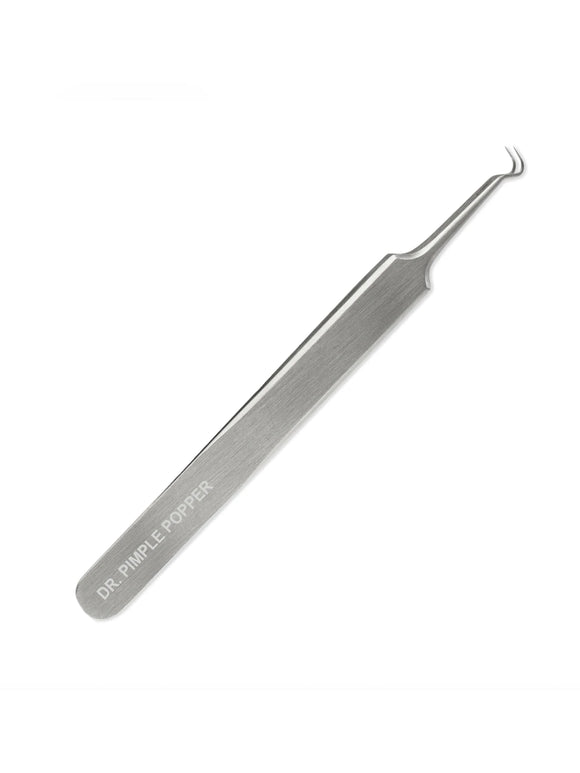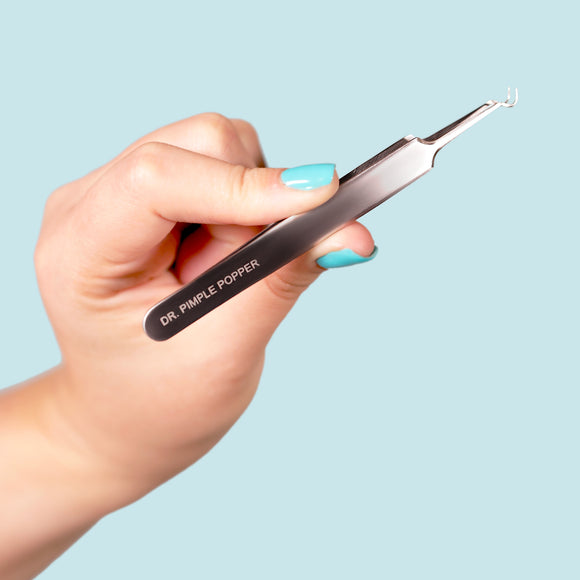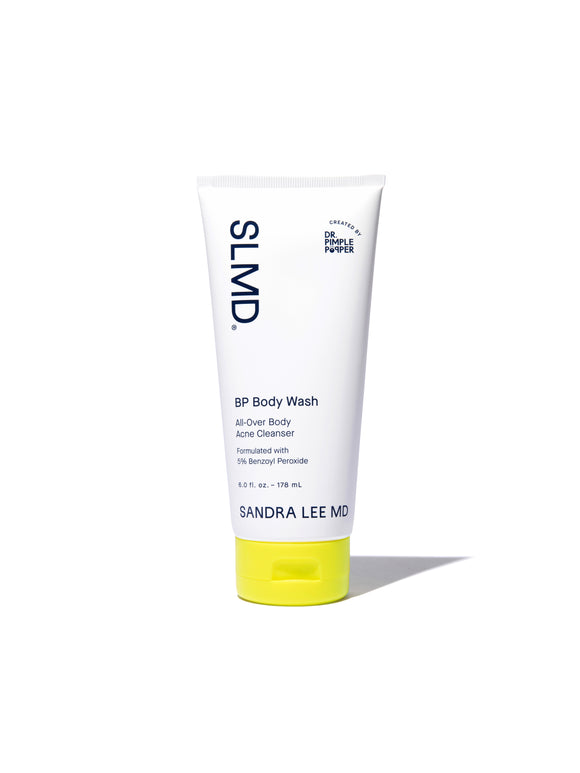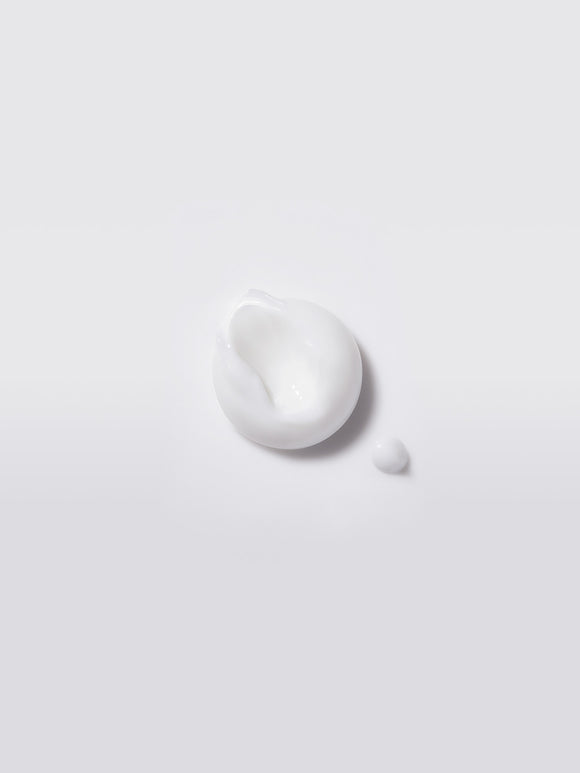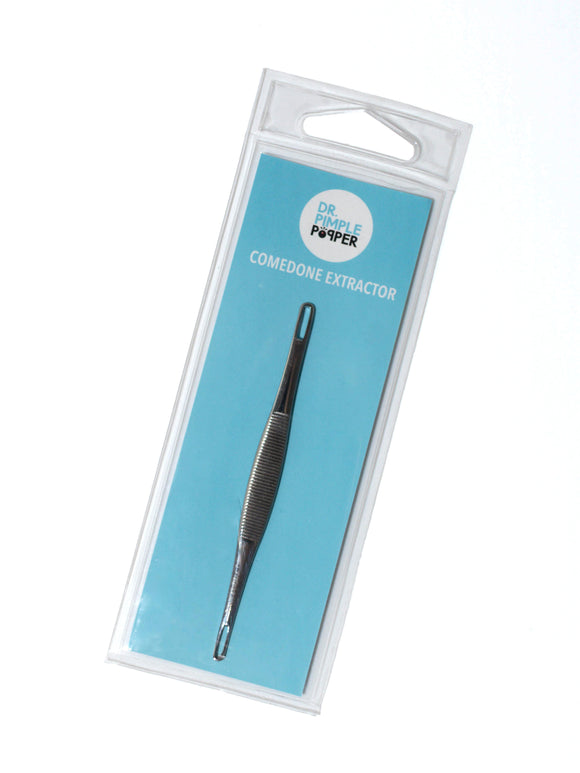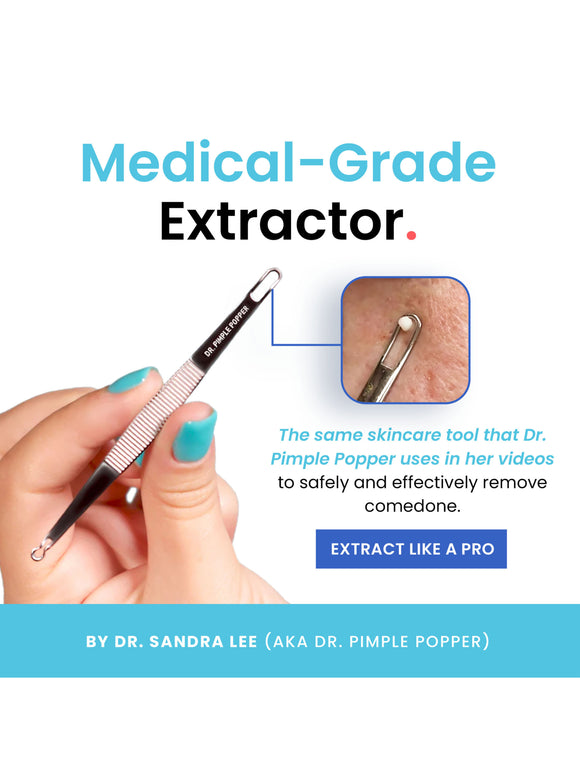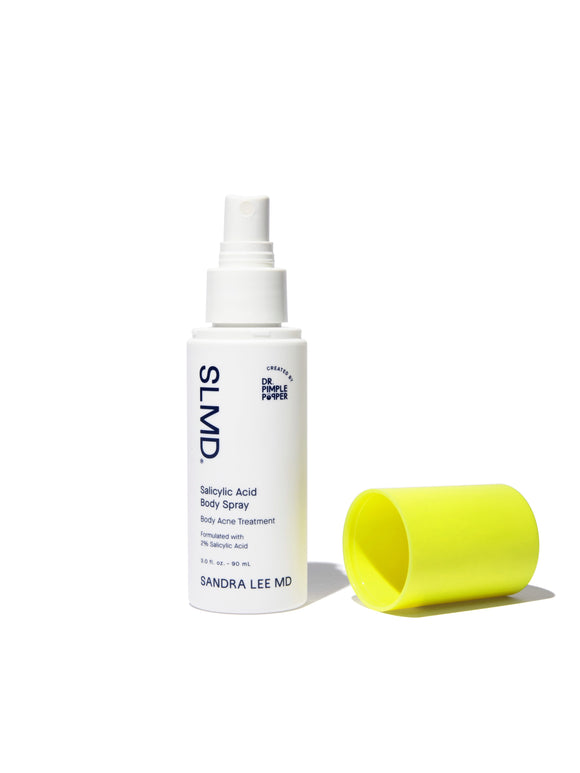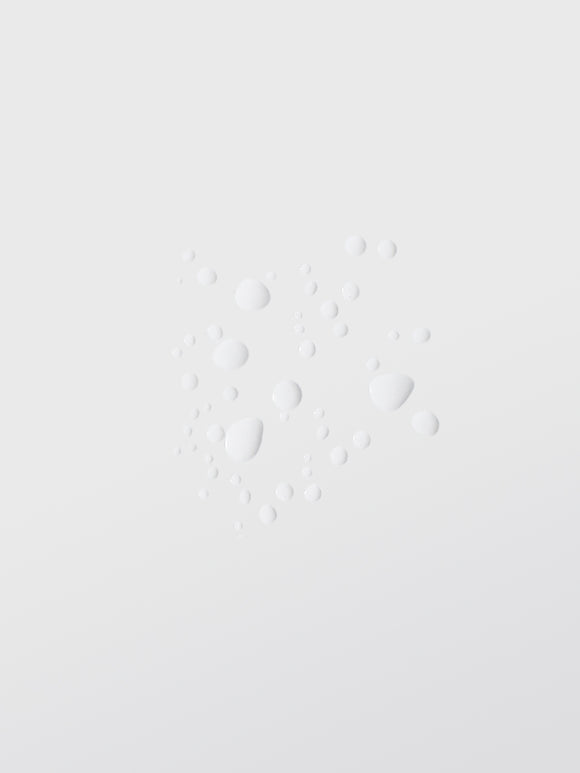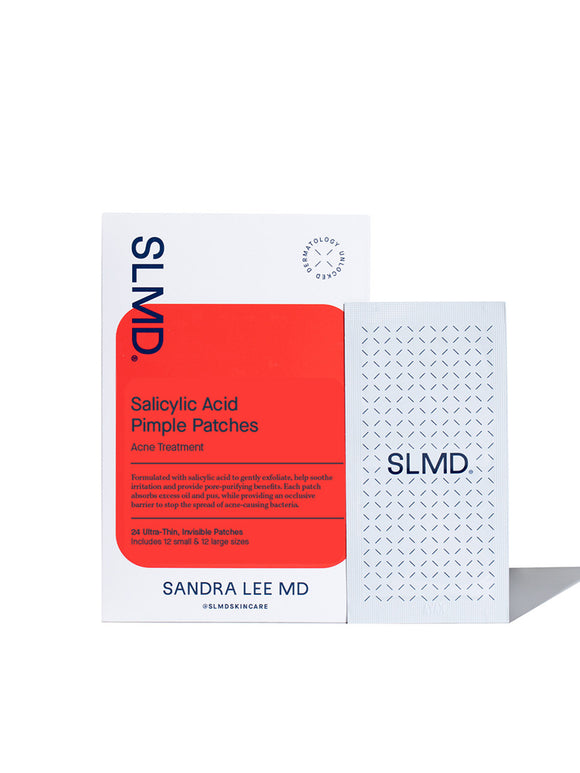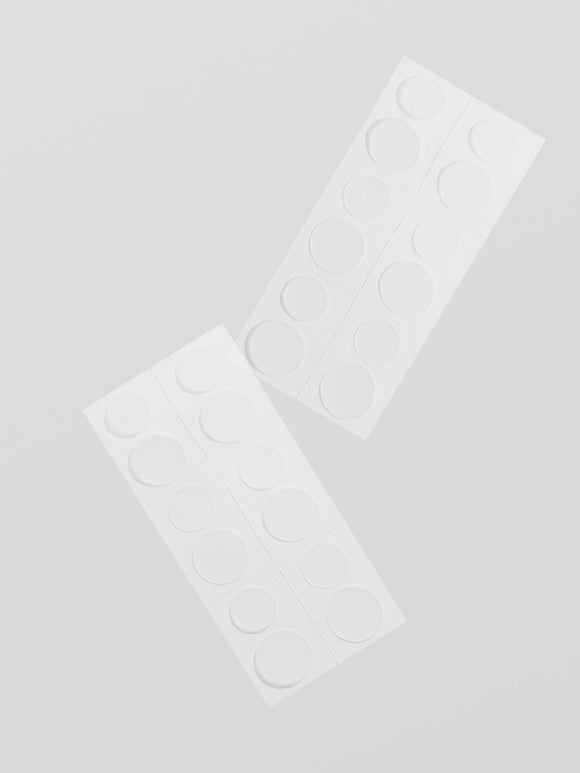
Understanding Who Gets Acne and Why: Causes, Triggers, and Treatments
It's the most common skin condition on the planet — so why do some people get more pimples than others?
Published:
2 minute read
Acne is a universal skin condition that affects around 80% of people at some point in their lives. That’s why dermatologist and SLMD Skincare founder Sandra Lee, MD (aka Dr. Pimple Popper) is always reminding us: acne is human. Knowing who gets acne and why can help us manage and prevent those common breakouts. Here, we dive into the causes, triggers, and effective treatments for acne.
Article Quick Links
What causes acne?
Acne breakouts occur when skin’s natural oils, dirt, and dead skin cells clog pores. When clogs are open to the air, they oxidize and form blackheads, while clogs trapped underneath the skin are whiteheads. These open/closed comedones are known as non-inflammatory acne. When the bacteria Cutibacterium acnes (C. acnes for short) gets trapped, it leads to inflammatory acne, which includes papules, pustules, nodules, and cysts.
Dr. Pimple Popper's Acne Fighting Picks
Why do teens get more acne?
During puberty, hormonal changes, particularly increased testosterone, lead to higher sebum production, making teenagers more prone to acne. This is why boys often experience more severe acne compared to girls. Those hormonal changes are like a double-edged sword, making skin more oily and prone to breakouts.
Is acne genetic?
Scientists believe that acne is ultimately caused by a complex interplay between four main factors:
- Genetics: If your parents had/have acne, your chances increase. So, if acne runs in your family, you might be more likely to experience it too.
- Hormones: Fluctuations can lead to breakouts in teens and adults. Hormonal changes, especially during puberty, menstrual cycles, or menopause, can trigger acne.
- Environment: Damage from UV rays and pollution can leave skin more susceptible to acne. Environmental factors like sun exposure and pollution can worsen acne.
- Lifestyle: Stress, diet, sleep habits, and skincare choices all factor into your skin health. High stress levels, poor diet, lack of sleep, and unsuitable skincare products can all contribute to breakouts.
Why do adults still get acne?
Adult acne is increasingly common and is often linked to hormonal changes, stress, and environmental factors. Women may experience acne related to their menstrual cycle or menopause, while stress and lifestyle changes can affect men’s acne. Stressful jobs, pollution, and lifestyle choices can keep acne around well into adulthood.
Dr. Pimple Popper's effective treatments for acne
To manage acne, controlling excess oil and keeping pores clear is crucial. Dermatologists like Dr. Lee recommend several active ingredients:
- Salicylic acid: exfoliates and unclogs pores, preventing blackheads and whiteheads. Try: SLMD Salicylic Acid Cleanser, Salicylic Acid Body Spray, SA Acne Spot Treatment, Salicylic Acid Pimple Patches.
- Benzoyl peroxide: kills acne-causing bacteria and calms inflammation. Try: SLMD Benzoyl Peroxide Acne Lotion, BP Body Wash.
- Sulfur: A natural mineral with antibacterial and anti-inflammatory properties that also helps exfoliate and absorb excess oil.
- Retinol: promotes cell turnover, keeping pores clear and minimizing hyperpigmentation. Try: SLMD Retinol Resurfacing Serum.
For chronic breakouts, Dr. Lee recommends her SLMD Acne System, which combines proven acne-fighters in a simple, 3-step system. For body breakouts, try the two-step SLMD Body Acne System.

Dr. Lee's Last Word
Acne is by far the most common skin condition we dermatologists treat. I always remind patients that it’s not life threatening — but I understand how disruptive it can be. Our first line of defense is to start a regimen containing over-the-counter actives and follow it consistently (that’s the key). In more stubborn cases, we can try a variety of prescription topicals, as well as oral medications. Remember to be patient and kind to your skin, and be reassured that acne can be managed.




